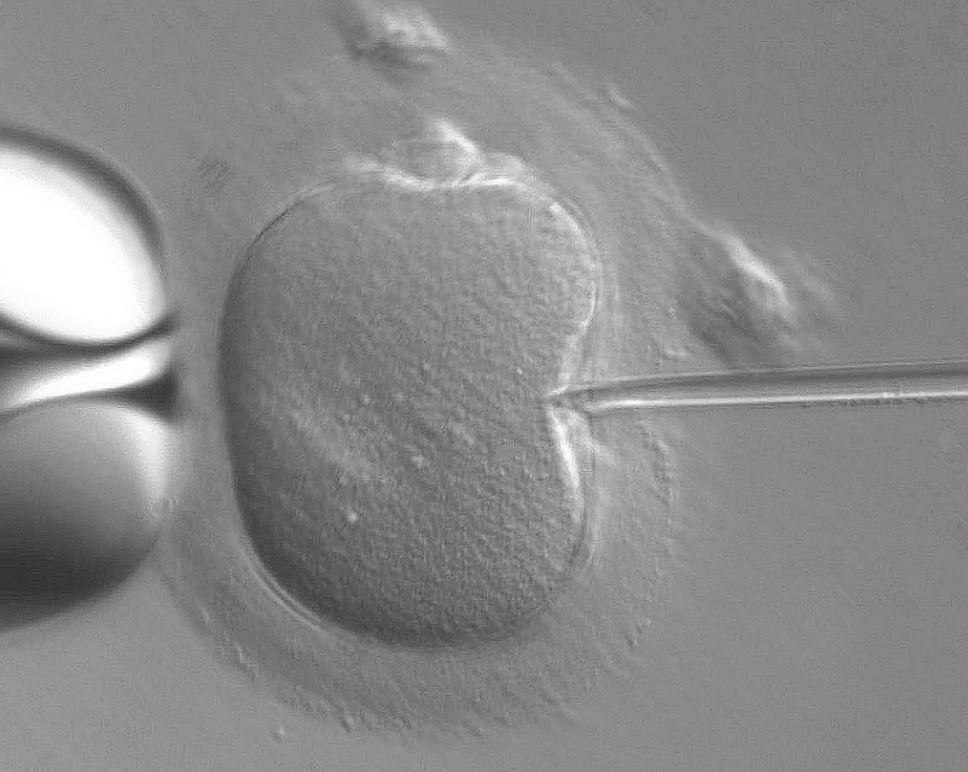Acupuncture & TCM for
Shoulder Pain
A Brief Introductory Guide

Understanding the Challenges of Shoulder Pain and the Benefits of Acupuncture
Shoulder pain is a common complaint that can significantly affect daily life and overall well-being. The shoulder is a complex joint made up of muscles, tendons, ligaments, and bones, making it prone to a variety of conditions and injuries. Shoulder pain can arise from overuse, trauma, poor posture, or degenerative conditions such as arthritis. The pain can range from mild discomfort to severe, debilitating pain that limits mobility and interferes with daily activities. Managing shoulder pain can be challenging, as it often requires a multifaceted approach that includes pain relief, physical therapy, and addressing underlying causes. Acupuncture, an ancient therapy rooted in Traditional Chinese Medicine (TCM), offers a holistic approach to managing shoulder pain by addressing both the symptoms and the underlying imbalances that contribute to the condition.
The Wellspring Integrative Approach
Women’s Health during all stages of conception, pregnancy, labor, delivery, and postpartum recovery is our specialty here at Wellspring Health.
It takes a village to raise a child, but before that, it takes a team to make a baby. You can’t do it alone and we at Wellspring Health are privileged to be a member of your team. Wellspring Health uses Traditional Chinese Medicine (Acupuncture & Herbal Medicine) and Conventional medicine in an integrative approach. This combination can enhance treatment outcomes, manage the side effects of conventional treatments (like chemotherapy), and provide additional support for chronic or complex conditions. We love science and we love working with conventional medical Doctors. This approach combines the strengths of both systems, offering a broader range of treatment options and emphasizing the prevention of disease as well as the treatment of existing conditions.
Reproductive Endocrinologists & Gynecologist Support During Fertility & Pregnancy: We enjoy collaborating with physicians and have extensive experience working with a large network of specialists in Manhattan. We can provide recommendations and referrals for every stage of the fertility, pregnancy, and postpartum journey.
Doula Support: We frequently work with doulas throughout all stages of pregnancy and delivery, providing integrated care and support to enhance the birthing experience.
Below is a comprehensive introductory guide to how Wellspring & TCM can support you throughout every stage of your journey. Feel free to jump to any specific section that best suits your needs.
Click to jump to section:
Challenges Associated with Shoulder Pain
Complex Anatomy and Movement: The shoulder joint is one of the most mobile joints in the body, allowing for a wide range of motion. However, this extensive mobility also makes the shoulder susceptible to instability and injury. The rotator cuff, a group of four muscles and tendons that stabilize the shoulder joint, is particularly vulnerable to strains, tears, and inflammation. Managing shoulder pain often requires addressing multiple structures, including muscles, tendons, ligaments, and even nerves.
Acute and Chronic Pain: Shoulder pain can be acute, resulting from injuries such as sprains, strains, or dislocations, or it can be chronic, stemming from conditions like tendinitis, bursitis, or frozen shoulder (adhesive capsulitis). Chronic shoulder pain can persist for months or years, leading to reduced range of motion, stiffness, and muscle weakness. Managing chronic pain is particularly challenging because it often involves multiple contributing factors, such as muscle imbalances, inflammation, and nerve involvement.
Loss of Range of Motion and Function: Shoulder pain often leads to reduced range of motion and limited function. This can make it difficult to perform basic activities like reaching overhead, lifting objects, or even getting dressed. In severe cases, shoulder pain can affect posture, leading to compensatory movements and further aggravating the condition. Restoring range of motion and function requires addressing the underlying causes of pain and inflammation while also strengthening and stabilizing the shoulder.
Radiating Pain and Nerve Involvement: Shoulder pain can be accompanied by radiating pain that extends to the neck, upper back, or down the arm. This type of pain may indicate nerve involvement, such as impingement of the brachial plexus or cervical spine issues. Nerve-related pain complicates treatment because it requires not only addressing local shoulder pain but also relieving pressure on affected nerves.
Impact on Sleep and Daily Activities: Shoulder pain can make it difficult to find a comfortable sleeping position, leading to sleep disturbances and fatigue. Poor sleep quality can exacerbate shoulder pain and create a cycle of discomfort and sleeplessness. Shoulder pain can also interfere with daily activities, such as carrying bags, reaching overhead, or performing repetitive tasks, further impacting quality of life.
Dependency on Pain Medications and Surgery: Many people with shoulder pain rely on over-the-counter or prescription pain medications to manage symptoms. While these medications can provide temporary relief, they do not address the root cause of the pain and may come with side effects such as drowsiness, digestive issues, or dependency. In more severe cases, surgical interventions, such as rotator cuff repair or shoulder replacement, may be recommended, but they carry risks and require lengthy rehabilitation.
From Our Fertility Clients
"I worked with Kirsten over the course of a couple of years and found her to be incredibly talented, knowledgeable and kind. Her office space has the same feeling of warmth and serenity that Kirsten herself embodies. She has a lot of experience working with women through various stages of their fertility journeys, and I think my time with her contributed to a successful IVF cycle and pregnancy."
-Emily H.
"Thanks to Kirsten's care, my fertility treatment was stress-free and went successful. The office is very conveniently located right off Union Square, but the setting is very tranquil and clean. Scheduling was easy and the office was quick to respond to my calls. Overall, highly recommend!"
-Tomo O.
“My Wife and I came here for fertility-related treatments. It was a 5 star experience! The clinic was spotless and the Kirsten is knowledgeable. We were delighted with the results and we would definitely recommend this clinic to others.”
-Travis W.
“I have been a patient of Kirsten's for four years and have nothing but wonderful things to say, and attribute to her and her practice. Not only has Kirsten helped combat the occasional headache or cold, but she has also helped me bring two healthy beautiful children into this world via fertility treatments, and labor preparation. Kirsten is attentive, calming, kind, and knowledgeable. She has also given many tips for my children when they've had colds, car sickness, etc. that we swear by! I have recommended Kirsten to countless friends + family members. This is the place to go for acupuncture treatments.”
- Raffkin B.
Benefits of Acupuncture for Shoulder Pain
Acupuncture is a natural, non-invasive therapy that involves the insertion of fine, sterile needles into specific points on the body to stimulate energy flow (Qi) and promote healing. It offers a holistic approach to managing shoulder pain by addressing both the physical symptoms and underlying causes of the condition. Here’s how acupuncture can benefit individuals suffering from shoulder pain:
Reduces Pain and Inflammation: Acupuncture helps alleviate shoulder pain by stimulating the release of endorphins, the body’s natural painkillers. It also modulates the body’s pain signals by influencing the nervous system, reducing the sensation of pain. Additionally, acupuncture promotes the release of anti-inflammatory chemicals, which helps reduce swelling and inflammation in the shoulder joint and surrounding tissues.
Improves Range of Motion and Function: Acupuncture helps relax tight muscles, reduce stiffness, and increase blood circulation around the shoulder joint. Improved circulation supports tissue healing and reduces muscle tension, which enhances range of motion and overall function. Regular acupuncture sessions can help restore shoulder mobility and make it easier to perform daily activities without discomfort.
Addresses Nerve-Related Pain and Radiating Symptoms: For individuals experiencing radiating shoulder pain due to nerve impingement, acupuncture can help relieve pressure on affected nerves by relaxing muscles and promoting alignment in the cervical spine. This can alleviate symptoms such as tingling, numbness, or weakness in the arms and hands, providing relief from nerve-related pain.
Supports Tissue Repair and Healing: Acupuncture enhances the body’s natural healing processes by promoting circulation and reducing inflammation. It stimulates the regeneration of damaged tissues, such as tendons and ligaments, and helps prevent scar tissue formation. This is particularly beneficial for individuals recovering from shoulder injuries or surgery.
Reduces Dependence on Pain Medications: Acupuncture provides a drug-free approach to managing shoulder pain, reducing the need for pain medications and their associated side effects. It can be safely integrated into a comprehensive pain management plan, providing additional support for long-term relief.
Promotes Emotional and Psychological Well-Being: Chronic shoulder pain can lead to stress, anxiety, and depression. Acupuncture has a calming effect on the nervous system and helps reduce stress and promote relaxation. This emotional support can enhance overall well-being and make it easier to cope with the challenges of living with shoulder pain.
LEARN MORE ABOUT WELLSPRING SUPPORTS:
Fertility, Pregnancy & Postpartum We Treat With TCM
Traditional Chinese Medicine offers a holistic and individualized approach to supporting women’s health through all stages of fertility, pregnancy, delivery, and postpartum recovery. By addressing imbalances in the body and promoting harmony between the physical and emotional aspects of health, TCM can enhance reproductive health, support a healthy pregnancy, and aid in postpartum healing. With its long history and integrative methods, TCM continues to be a valuable option for women seeking a natural and comprehensive approach to wellness and maternal care.
Female Infertility: Improving ovarian function and egg quality, balancing hormones, supporting Uterine Health, blood flow, nervous system, emotional support, and stress management.
Stress Management, Nervous System Supports & Pregnancy: Regulate stress response, stimulate endorphins, balance cortisol, sleep, muscle tension, pain relief, emotional support, a place to relax, let go and get some care.
IVF/IUI: Support pre- and post-embryo transfer, reducing IVF-related stress and anxiety, and managing hormonal fluctuations during IUI/IVF.
Egg Freezing: Optimizing ovarian reserve, preparing the body for egg retrieval, managing side effects of hormonal stimulation, and post-egg retrieval recovery.
Pain & Pregnancy: Relieving back pain, pelvic pain, sciatic and joint pain.
Labor Prep, Delivery & Induction: Promote cervical ripening and softening, supporting natural and assisted labor induction, pain relief, and breech babies.
Prenatal & Trimester Support: Nausea and fatigue, fetal development support, breech presentation and positioning, insomnia and stress.
Post Partaum: Emotional supports balancing hormones, stress response, lactation support, activating parasympathetic nervous system to encourage relaxation.
Lactation: Enhancing milk supply and flow, addressing blocked milk ducts and mastitis, balancing hormones, reducing stress, and improving milk quality.
Recurrent Miscarriage: Strengthening uterine health, immunological factors, managing stress and anxiety.
Male Infertility: Improving sperm quality and motility, varicocele, hormone, and libido imbalance.
Parting Thoughts:
Shoulder pain presents significant challenges that can affect mobility, daily activities, and overall quality of life. While conventional treatments like medications and physical therapy can provide relief, acupuncture offers a holistic approach that addresses both the symptoms and underlying causes of shoulder pain. By reducing pain and inflammation, improving range of motion, and supporting emotional well-being, acupuncture provides a valuable complementary therapy that can enhance traditional shoulder pain management strategies and promote a higher quality of life. Through its multifaceted benefits, acupuncture helps patients achieve sustainable relief and regain function.













